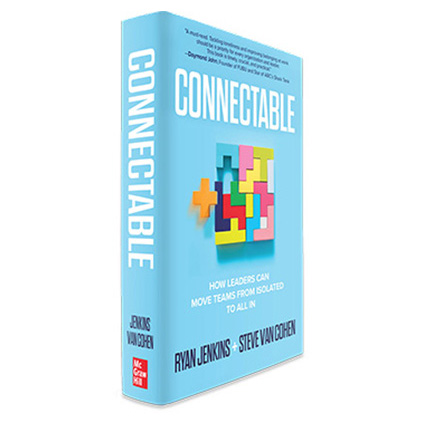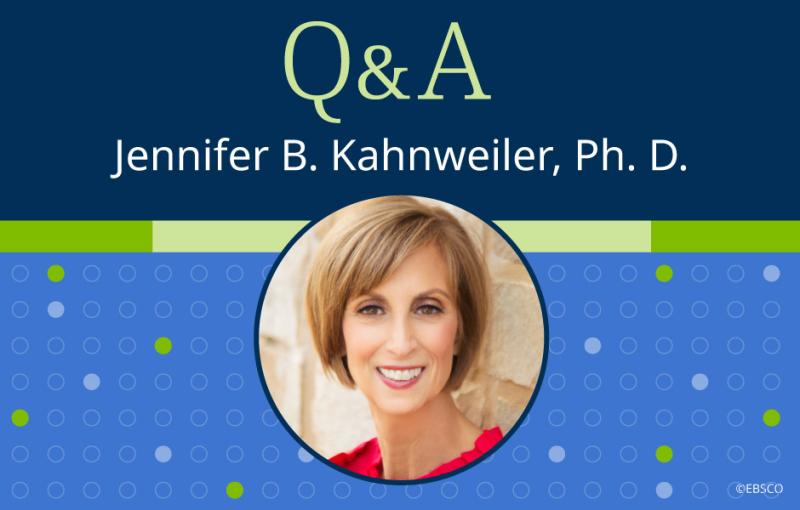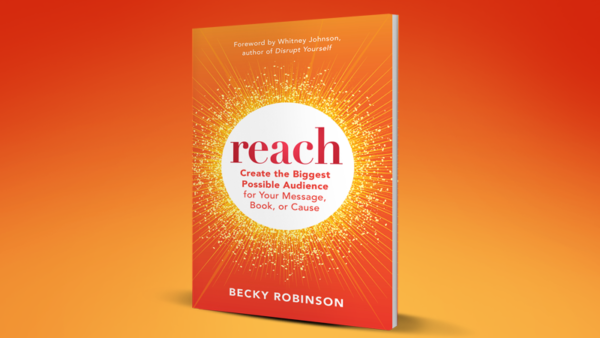I am so pleased to host this guest blog post about human connection by my friend and colleague, Ryan Jenkins. I look forward to hearing your thoughts about this timely topic of loneliness and connection.
As an introvert, I recently wrote a book about human connection. It’s called, Connectable: How Leaders Can Move Teams from Isolated to All In and is about overcoming loneliness in a world of growing isolation.
It’s said that authors often write the books they themselves need to read. That was true for me.
Though I don’t suffer from chronic loneliness, during the pandemic I found it increasingly easy to isolate from others and trade social connections for the convenience of meal delivery, remote work, and Netflix-binging. It took a 2-year long immersion into the science of loneliness and belonging to wake me up to the significance of connection.
Here are 5 lessons I learned about loneliness and human connection.
Lesson #1: Loneliness is NOT the absence of people but the absence of connection.
Someone can be in a crowded office and still experience loneliness. Conversely, a solo remote worker can be fully engaged in their work and not feel lonely. When a person is disconnected from themselves, their team or community, the culture, or the work they’re involved with loneliness can follow.
Loneliness is multi-dimensional, and introverts can lessen loneliness by strengthening connections in other ways outside of other people.
Lesson #2: Our brains mislead us about human connection.
Loneliness doesn’t discriminate. Loneliness doesn’t know if you are at work or home, young or old, extroverted or introverted.
Researchers recently studied folks on trains, city buses, cabs, airports, and waiting rooms to measure if folks would have a better experience keeping to themselves or connecting with a stranger. Every environment they tested had the same results: people were happier when they were connecting with others.
They also discovered that there was no difference between introverts and extroverts. Introverts enjoyed connecting with others as much as extroverts did. What tends to vary is their expectations. Introverts who expect not to enjoy a conversation will choose not to engage. However, on average, both felt happier when connecting with others.
Yet when participants were surveyed at the beginning of the study, most said they expected to have a worse experience when connecting with others. Most people wrongly predicted that engaging with others wouldn’t be pleasant. Our brains mislead us. We all crave connection.
Lesson #3: Loneliness isn’t shameful; it’s a signal.
People need to stop beating themselves up over their feelings of loneliness. It’s normal. It’s a universal human condition. In fact, it’s useful.
Why?
The same complex homeostatic system in our brains that drives us to eat and drink is similar to what drives us to connect and converse. Akin to hunger, loneliness is our biological signal to seek connection. Hunger motivates us to eat. It’s a motivational force to forge strong relationships. It’s our innate reminder that our presence matters to others. It’s proof we need each other.
Lesson #4: Aloneness can lessen loneliness.
I’m not antisocial. I’m pro-solitude. And it turns out, solitude is insurance against loneliness.
The negative state of isolation is loneliness. The positive state of isolation is solitude. Solitude is a state of being alone without the emotions of loneliness. When we experience loneliness, we want to escape it as it is an unpleasant emotion.
On the other hand, solitude, which is the comfort zone for introverts, is peaceful aloneness created by a state of voluntary isolation. Solitude can take many forms such as self-reflection, meditation, mindfulness exercises, or a quiet break from the demands of life. Solitude offers the opportunity to connect inwardly with oneself. Emotional well-being, clarity, creativity, and perspective are some of the benefits of intentional and healthy solitude.
Solitude seems to be more and more elusive in today’s distraction-prone world. But when solitude is fought for and done right, it helps to strengthen the connection with ourselves that in turn equips us to connect more deeply with others.
Lesson #5: Connections don’t have to be lasting to be meaningful.
As an introvert and highly ambitious person, I often didn’t make the effort to connect with people I knew weren’t going to be involved long-term in my life. A stranger in the elevator, a local barista, or an Uber driver never really got my full presence and attention. However, research proves that it only takes 40 seconds for loneliness to lessen during a two-person interaction.
Now that I am aware of how critical social connections are to my well-being and the well-being of others—and how little time it takes to garner a sense of connection—I make an effort every day, no matter how fleeting, to connect. I have personally experienced an elevated well-being and seen it in those I interact with.
So take it from this introverted author. No matter how hard an exterior you have, or how task-focused, introverted, or results-driven you are, at the end of the day, we all pine for people. No matter the barriers we intentionally or unintentionally put between ourselves and others, life is absolutely better together—when we have that human connection.
Ryan Jenkins, CSP is an internationally-recognized keynote speaker, virtual trainer, and three-time published author. His latest book is Connectable: How Leaders Can Move Teams From Isolated to All In. For a decade, he has helped organizations optimize generational dynamics, lessen worker loneliness, and prepare for the future of work. He is also co-founder of LessLonely.com, the world’s first resource fully dedicated to reducing worker isolation and strengthening team connections. Ryan lives in Atlanta, GA with his wife, three children, and yellow Labrador. Learn more at RyanJenkins.com.





